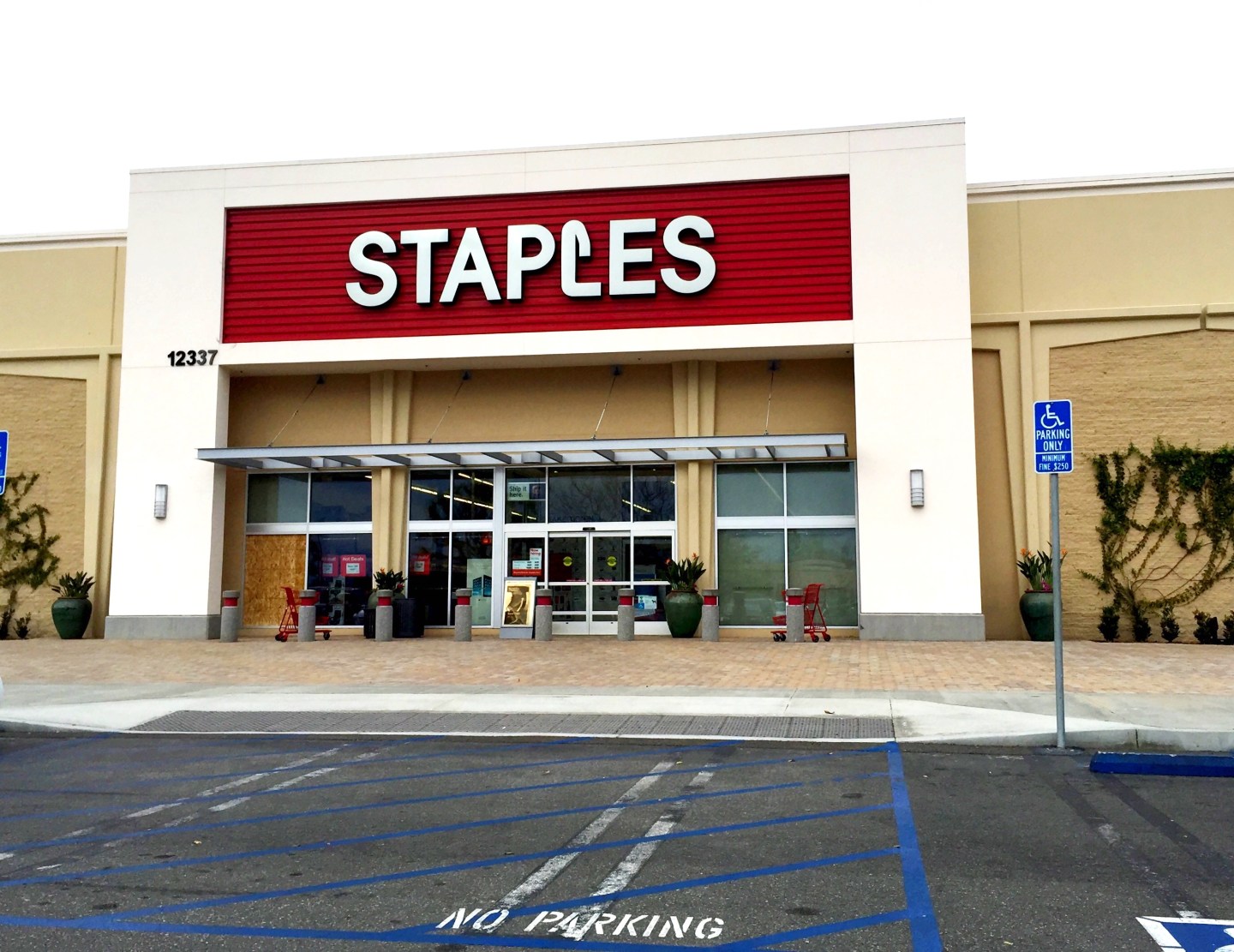One of the country’s largest store chains wants to be a bit smaller.
Staples (SPLS) said on Thursday it was closing another 70 stores in North America amid sharp sales declines in its top market and a continued pivot to business services and away from brick-and-mortar for the leading office supplies retailer.
Comparable sales, which excludes the impact of newly opened or closed stores, fell 7% in the fourth quarter in the United States and Canada, and for the whole company, adjusted profit per share was 25 cents a share in the period, a penny less than analysts estimated.
Staples’ shares were down 5% to $8.50 in morning trading.
The latest store closings come on the heels of 48 shutterings last year, and a combined 242 in the two prior years. As of the start of the current fiscal year, Staples had 1,255 U.S. stores and 304 Canadian locations. The retailer also operates some stores in other markets.
In the nearly one year that has passed since U.S. regulators thwarted its plan to buy smaller rival Office Depot (ODP) on antitrust concerns, Staples has been trying to win more business contracts and further beef up its e-commerce, already a leader in drive-by pick up and delivery, and rely less on traditional retail to everyday consumers, a long dwindling business. Staples made its initial offer to buy Office Depot in early 2015 in a cash-and-stock deal valued at $5.5 billion at the time.
As part of a new growth planned unveiled last May, Staples has focused more on smaller companies that employ 10 to 200 employees to diversify away from the Fortune 1000 companies that are its bread and butter. Staples has been adding 1,000 people to its sales force and push its private label products harder. And the company has been looking to buy business-to-business service providers beyond office supplies.













